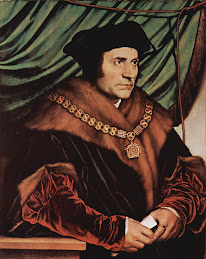Making the rounds have been the pope's assessment of the future of Western civilization should the common interest of a consensus on fundamental morals be abandoned: "The future of the world is at stake."
More striking to me is this passage, pertinent news to a world steeped in moral relativism:
To the objective realm belong things that can be calculated and verified by experiment. Religion and morals fall outside the scope of these methods and are therefore considered to lie within the subjective realm. Here, it is said, there are in the final analysis no objective criteria. The ultimate instance that can decide here is therefore the subject alone, and precisely this is what the word “conscience” expresses: in this realm only the individual, with his intuitions and experiences, can decide. [Blessed Cardinal John Henry] Newman’s understanding of conscience is diametrically opposed to this. For him, “conscience” means man’s capacity for truth: the capacity to recognize precisely in the decision-making areas of his life – religion and morals – a truth, the truth. At the same time, conscience – man’s capacity to recognize truth – thereby imposes on him the obligation to set out along the path towards truth, to seek it and to submit to it wherever he finds it.
This reminds me that we are the guardians of truth, not the dictators of it. We do not have the authority to determine what is right and wrong by our own decisions. By our opinion we cannot make good into bad and bad into good, though the world still tries to. Truth must dictate our understanding of reality, and principle, not emotion, must guide our moral action.





No comments:
Post a Comment